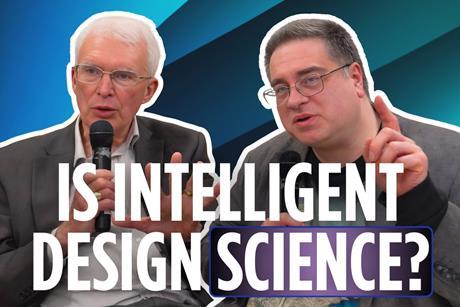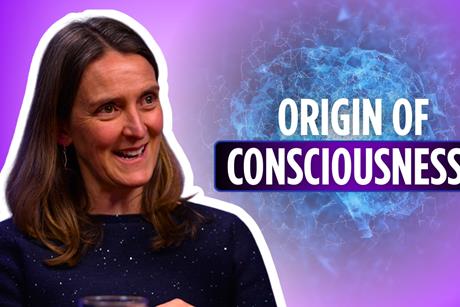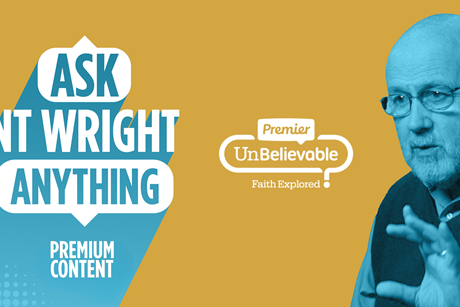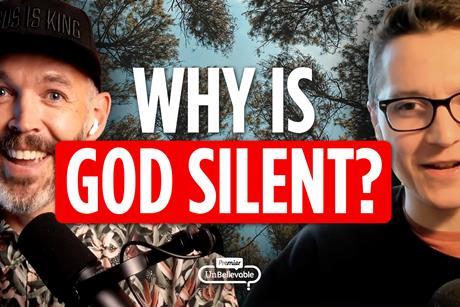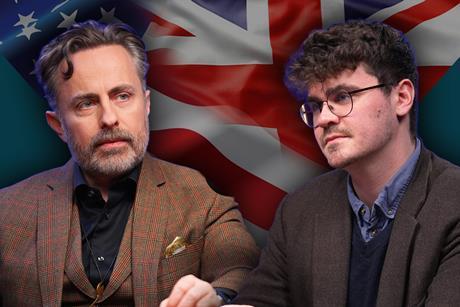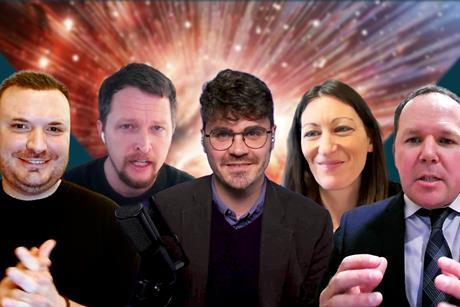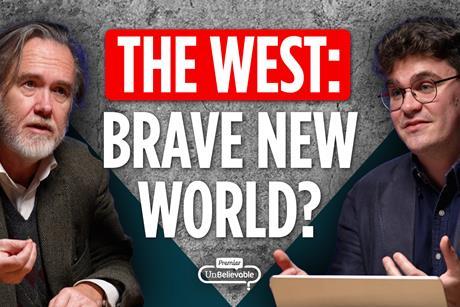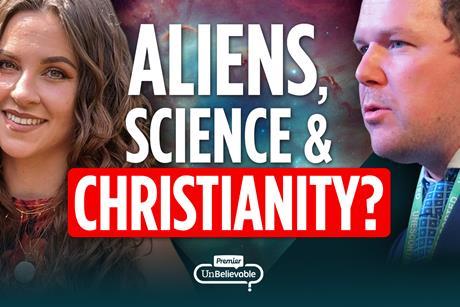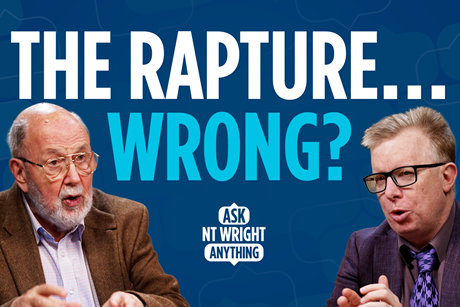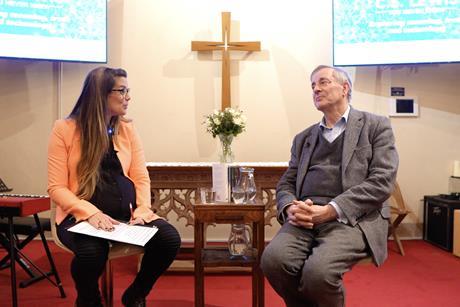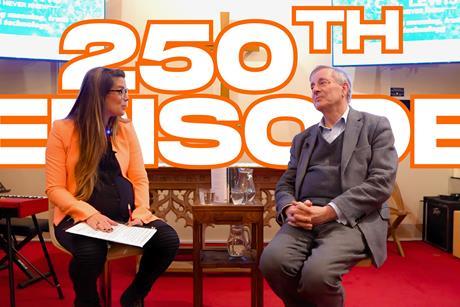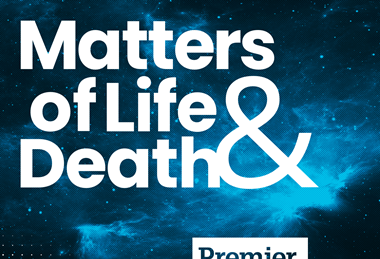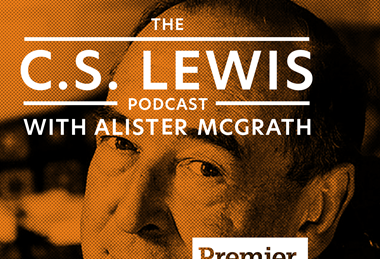Is Intelligent Design Actually Science? A Live Debate Prof Keith Fox vs Peter S. Williams hosted by Andy Kind
Touching grass and witnessing to truth: the church in an era of AI fakery and misinformation
Are We More Than Our Brains? Dr Sharon Dirckx on Mind, Meaning & the Mystery of Being Human
Heaven and Earth, One New Family: N.T. Wright’s Vision for Unity in Ephesians
- Previous
- Next
Watch the latest debates
Is Intelligent Design Actually Science? A Live Debate Prof Keith Fox vs Peter S. Williams hosted by Andy Kind
Free Will And Responsibility | Amna Whiston v Matthew Su hosted by Sam McKee
Why Doesn’t God Show Himself? (Agnostic Philosopher vs Christian) | Dan Paterson vs Joe Schmid hosted by John Nelson
Christian Nationalism: Biblical or Dangerous? Doug Wilson vs Mike Bird
Why The West Can’t Escape Christianity
Christian Apologetics Has a Problem – And It’s Not Atheism
Is the West Becoming Brave New World? | Rod Dreyer and John Nelson - An Unbelievable Show Special
Decoding the Cosmos: Atheist Philosopher vs Christian Scientist on Fine-Tuning, Time, Incarnation & Alien Life Emily Qureshi-Hurst vs Sam McKee hosted by Andy Kind
Article new
The Parable of the GP: What My Mouth Ulcers Taught Me About Modern Britain
When a painful outbreak of mouth ulcers led to two very different GP appointments, J.John discovered a quiet but urgent truth about modern Britain: efficiency may keep systems moving, but empathy is what truly heals.
Heaven and Earth, One New Family: N.T. Wright’s Vision for Unity in Ephesians
In this bonus episode, Tom Wright and Michael Bird open up Ephesians as Paul’s “panoramic” letter, exploring why its vision for unity, holiness, and the renewal of all things is urgently needed in today’s church.
Why Did I Debate Douglas Wilson? By Rev. Dr. Michael Bird
Rev. Dr Michael F. Bird explains why he chose to debate Douglas Wilson, a controversial figure in American Christianity. Bird argues that honest engagement, fair critique, and open dialogue are better tools than censorship or outrage for addressing the influence of Christian nationalism.
Should Christians keep Saturday as the Sabbath?
If the biblical Sabbath is Saturday, why do Christians worship on Sunday? N.T. Wright traces the Sabbath through Scripture to show how Jesus’ resurrection reshaped time, rest, and the meaning of God’s Kingdom
Who We Are
At Premier Unbelievable, we believe dialogue matters. As part of the Premier Christian Radio family in the UK, our mission is to spark thoughtful, respectful conversations around faith, belief and worldview.
Our Story
From our beginnings with the flagship podcast Unbelievable?, we’ve grown into a platform that brings together Christians and sceptics, theologians and curious minds, to explore life’s big questions. We produce high-quality podcasts, video series, live events and training – always aiming to create a space where belief and doubt meet honestly.
Our Mission
To empower Christians with a thinking faith and to invite non-Christians into honest, open conversations about life, meaning and truth. We aim to bring credible Christianity into the public sphere and to change the conversation about faith in our world.
Ask NT Wright Anything
The death of Judas, Biblical Inerrancy and how to avoid being too “heavenly minded”?
How did Judas really die, by hanging or by falling and bursting open? Does the Bible contain contradictions? And what does it really mean to “set your mind on things above”?
Puzzled by Dispensationalism: is our suffering redemptive? The rapture, new creation & becoming “Divine”
In this episode of Ask NT Wright Anything, Tom Wright and Mike Bird tackle three profound theological questions that sit right at the heart of Christian hope.
Rediscovering evil
Are we missing a vital part of the Christian story? The Bible says spiritual evil is real, but many believers treat it as outdated or uncomfortable. In this episode, we explore why talk of Satan and spiritual warfare has faded—and why recovering this theology could help us live more faithfully today.
Read storyTouching grass and witnessing to truth: the church in an era of AI fakery and misinformation
Tim recently spent a few weeks researching AI misinformation in the church context for a newspaper article, and that serves as the jumping-off point for today’s conversation.
Psychedelics: Shamans, the philosophy of Harry Potter and the neuroscientific turn
Tim is away this week, so we’re dipping into the MOLAD archive for a classic episode from 2024. Culture is increasingly interested in psychedelic drugs.
The social media addiction trial: Can Christians use the courts to protect the vulnerable?
This episode explores the high-stakes legal battle against social media giants in Los Angeles, as families and schools sue over platforms’ addictive designs and their impact on teens. With governments and courts stepping in, we ask: Can Christians use the law to protect the vulnerable? Should believers push for harm reduction, bans—or a new prophetic voice in the digital age?
The CS Lewis Podcast
#251 Alister McGrath LIVE: The CS Lewis You Never Knew: Exploring meaning, truth and technology (part 2)
For today’s special episode, Ruth is joined by Alister McGrath for part 2 of a live event recording of the CS Lewis Podcast, captured in front of an audience. In this episode, the conversation dives into one of the most pressing questions of our time: truth.
#250 Alister McGrath LIVE: The CS Lewis You Never Knew: Exploring meaning, truth and technology (Part 1)
For today’s special episode, Ruth is joined by Alister McGrath for a special live event of the CS Lewis Podcast, recorded in front of an audience. The conversation explores today’s major questions about meaning, identity, and uncertainty, which of Lewis’ works speak most clearly now, and why he remains so relevant in the modern world.






